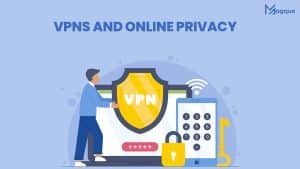Free VPNs seem like an attractive option at first glance. After all, who doesn’t like something free? These services typically don’t require any upfront payment and are easy to set up. They can provide essential protection by masking your IP address and encrypting your internet traffic, making it harder for hackers and advertisers to track you online.
However, there are several drawbacks to consider. Free VPNs often have limitations, such as restricted bandwidth, slower speeds, and fewer server locations. Additionally, many free providers monetize their services by collecting user data and selling it to third parties for advertising purposes, which defeats the purpose of using a VPN for privacy.
Advantages of Paid VPNs
On the other hand, paid VPNs offer a higher level of service and security. With a paid subscription, you typically get access to a more extensive network of servers spread across multiple countries, faster connection speeds, and unlimited bandwidth. Paid VPN providers invest more in infrastructure and security measures, ensuring your data remains safe and secure.
Another advantage of paid VPNs is that they often come with additional features such as ad-blocking, malware protection, and customer support. This level of support can be invaluable if you encounter any issues while using the service.
Making the Right Choice
Deciding between a free and paid VPN ultimately comes down to your priorities and requirements. A free VPN might suffice if you’re on a tight budget and only need essential protection for occasional browsing. However, investing in a paid service is worth considering if you value your privacy and security and rely on a VPN for tasks like streaming, torrenting, or remote work.
Remember that not all paid VPNs are created equal, so it’s essential to research and choose a reputable provider that offers the features you need. Look for reviews, compare pricing plans, and consider factors such as server locations, encryption protocols, and logging policies before deciding.
Conclusion
In conclusion, both free and paid VPNs have their pros and cons. While free VPNs offer a cost-effective solution for basic browsing, they often come with limitations and privacy concerns. On the other hand, paid VPNs provide a higher level of security, speed, and customer support, making them a better choice for users who value their online privacy.
Ultimately, the decision depends on your specific needs and preferences. Whether you choose a free or paid VPN, remember to prioritize security and select a reputable provider that prioritizes your privacy.
At Magque, we understand the importance of online privacy and security. Our blog offers tips and insights on staying safe digitally.
FAQs
1. Are free VPNs safe to use?
While some free VPNs may offer basic security features, many come with risks, such as data logging and selling user information to third parties. Paid VPNs typically provide higher levels of encryption and privacy protection.
2. What are the limitations of free VPNs?
Free VPNs often come with restrictions on bandwidth, server locations, and connection speeds. This can impact your browsing experience, especially for activities like streaming or torrenting.
3. Why should I consider a paid VPN over a free one?
Paid VPNs offer benefits such as faster speeds, unlimited bandwidth, and access to a more extensive network of servers. They also prioritize user privacy and security, including ad-blocking and malware protection.
4. Can I trust paid VPN providers with my data?
Reputable paid VPN providers have strict privacy policies and do not log user data. They use advanced encryption protocols to protect your information and are vested in keeping your data secure.
5. How do I choose between a free and paid VPN?
Consider your specific needs and priorities. A free VPN may suffice if you require essential protection for occasional browsing. However, investing in a paid VPN is recommended if you value your privacy and engage in activities requiring higher security levels. Evaluate factors like pricing, features, and user reviews to make an informed decision.
Read Also This:- VPNs for Secure Remote Work













